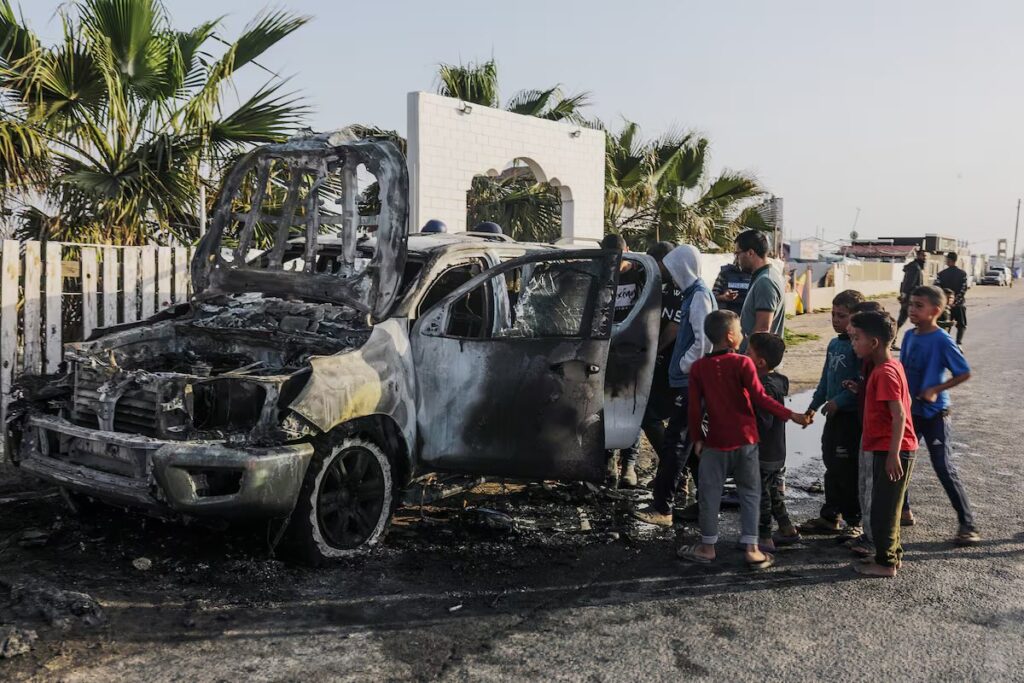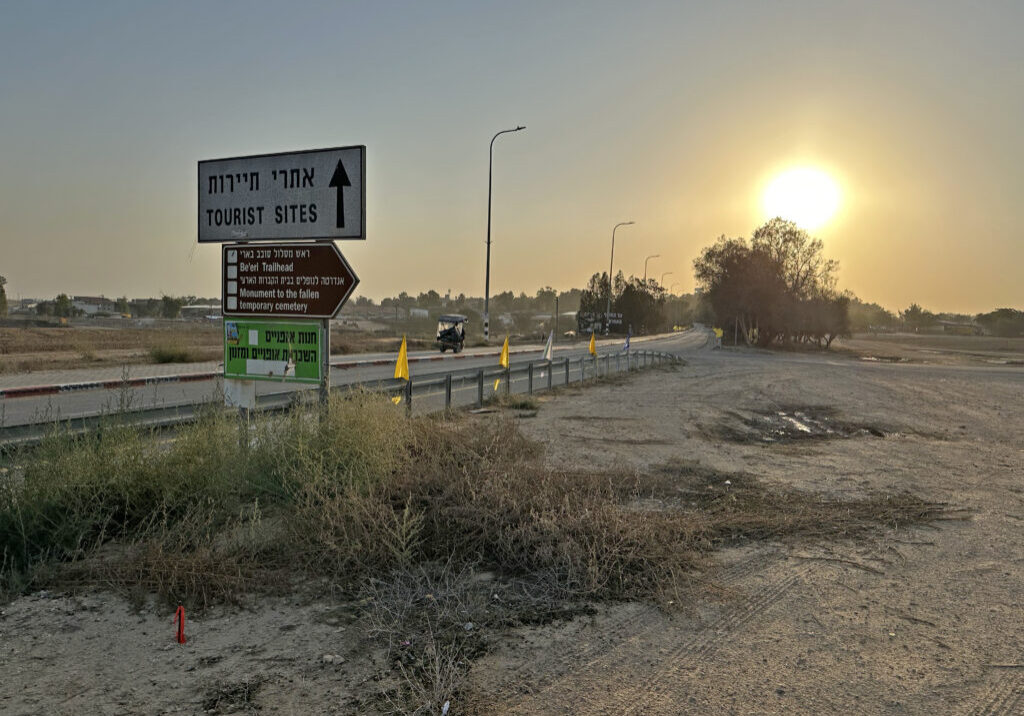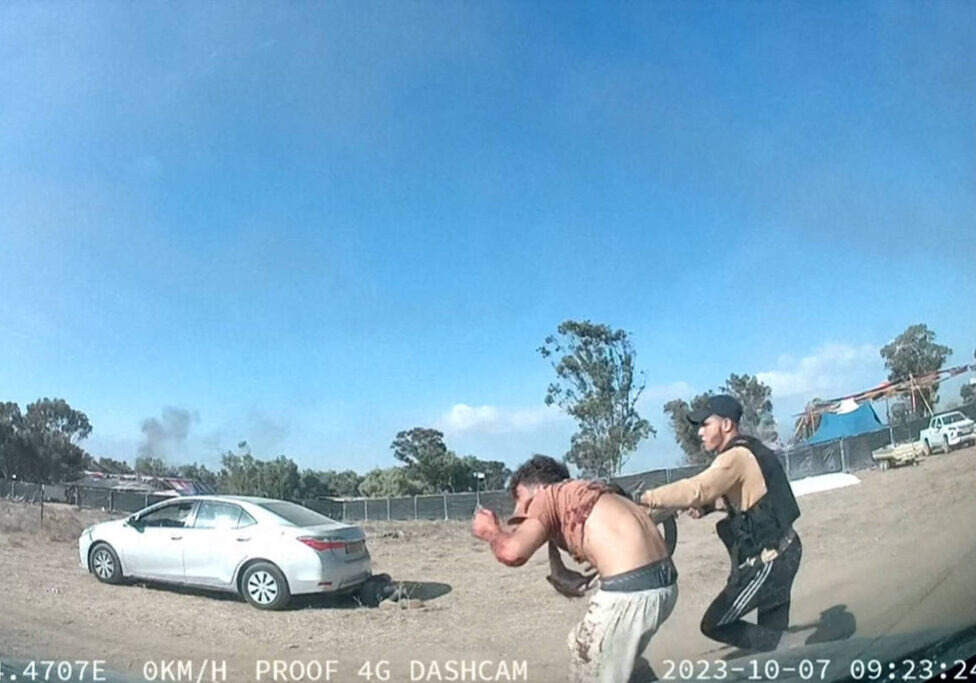Australia/Israel Review
Tragic errors, “distinction” and the laws of war
Apr 22, 2024 | Geoffrey S. Corn

Single incidents of error in battle can and often do have a defining effect on how the public perceives the legitimacy of a war. Americans old enough to remember the name My Lai, or Abu Ghraib, will no doubt understand this. It is a manifestation of the reality of what might best be characterised as mistake magnification: when the world expects perfection from a professional armed force, mistakes become profoundly impactful on the perception of legitimacy.
This phenomenon is playing out at this moment in relation to the unquestionably tragic attack that left seven international aid workers dead in Gaza on April 1. Indeed, many commentators have suggested this might be a tipping point that leads to irresistible pressure on Israel to terminate its combat operations in Gaza. For his part, Israeli PM Binyamin Netanyahu acknowledged the deaths were the result of a mistaken attack decision, but also noted that such mistakes “happen in war”.
Yes, they do, and anyone who needs a reminder that even the most technologically advanced, robustly equipped, and highly trained military is susceptible to such mistakes need only recall the 2015 US attack that devastated a Doctors Without Borders hospital in Kunduz, Afghanistan. After assisting that organisation review the US Central Command investigation into that incident, I came away convinced the attack was not the result of any illicit intent by the US military personnel involved, but instead a tragic error set in motion by a combination of mistakes, mishaps, and the inherent chaos of war.
When armed forces such as those of the United States or Israel are involved in such tragedies, public scrutiny and demand for credible and transparent investigations – and when justified by evidence, disciplinary action – is understandable. What is less understandable is what seems to be a unitary focus of condemnation on the side of the conflict that launched the attack, with almost no consideration of if and how the tactics of the enemy contributed to the mistake. While it is easy to recognise that an IDF attack decision was the immediate cause of the tragic deaths it produced, assessing responsibility is more complicated.
According to the most recent reports, the IDF personnel who ordered this attack relied on insufficient information to justify their decision, and several personnel have been relieved of duty and reprimanded. But this also indicates this attack was most likely launched against what these personnel assessed, albeit mistakenly, to be a valid enemy target.
The scrutiny on that attack decision is justified, and if it was either a deliberate effort to attack civilians (unlikely), or a reckless judgment as to the nature of the target (perhaps), it is deserving of disciplinary and maybe even criminal sanction (although proving such a case beyond a reasonable doubt would be challenging to say the least). But if the mistake was, considering all the circumstances of that moment, reasonable in the sense that other commanders may have made the same mistake under the same circumstances, then tragedy does not equal criminality.
The extent to which the world seems to ignore the impact of Hamas’ illicit tactics on such tragedies is both perplexing and disappointing. It is no secret that the enemies the IDF confronts in Gaza constantly seek to complicate IDF attack decisions by failing to distinguish themselves from the civilian population and by using civilians to shield military assets. Their goal is obvious: gain tactical advantage by exploiting IDF commitment to the legal obligation to target only military personnel and objectives and to mitigate civilian risk. And when these tactics compel the IDF to conduct attacks that result in incidental harm to civilians and collateral damage to civilian property – or make a targeting mistake that results in civilians being killed – the illicit tactics produce a windfall in the strategic campaign to delegitimise and isolate Israel. The extent of this perverse benefit is apparent from the reaction to this latest tragedy.
Such tactics violate the most basic principle of the international laws of war that regulate hostilities: distinction. This principle prohibits deliberately attacking any person, place, or thing that is not reasonably assessed as a legitimate target (most notably enemy belligerent personnel). But the principle is complemented and enhanced by rules that prohibit feigning civilian status to gain an advantage on an enemy by exploiting his respect for legal protection afforded civilians. And when such tactics result in killing or injuring an enemy, they violate the prohibition on perfidy, which is a war crime. The rule also obligates all sides to a conflict to refrain from placing their military assets in the midst of civilian objects.
These rules are intended to mitigate the risk of exactly what happened in Gaza with the deaths of the workers for World Central Kitchen. But it is self-evident that the protective effect of the rule that prohibits deliberately attacking civilians is significantly diluted when armed groups like Hamas engage in the illicit practice of pretending to be civilian and fail to distinguish themselves from actual civilians. In so doing, the enemy increases the risk of mistaken attack judgments that, under the circumstances, will often fall within the realm of reasonableness.
When a combatant is unable to tell the difference between enemy and civilian, the enemy may gain an advantage, but it is always the civilians who will pay the greatest price.
Demanding more insight into why a military as capable and competent as the IDF launched this attack is justified and important. Accountability for unreasonable attack judgements is essential to offset the detrimental impact of misconduct magnification. But this should not distort our understanding of how the pervasively illegal tactics employed by Hamas and other illicit organised armed groups dilute the protection the law struggles to achieve for civilians caught up in conflict. Only by demanding that all sides to a conflict respect international law will we have any hope of preventing such tragedies in the future.






